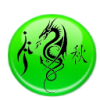User:Llyn
|
Llais
Gnovenoe leudhoen sin terwadh e enys anagyvys. (Mark Meinil) |
Éste soy yo - This is me
¡Hola a todos! Yo soy Llais (IPA: ['ɬai̯s]) y soy un conlanger, un creador de lenguas artificiales. El nombre de usuario que uso en la red, incluso aquí en linguifex, es Llais Bleith, es un seudónimo que tiene un significado bastante curioso. De hecho me encantan la mitología y las lenguas célticas y particularmente las galesas. "Llais" es la abreviatura del nombre galés Llaiswynt, un nombre que he creado yo y que significa "voz del viento". "Bleith" lo he creado de bleidd, que en galés quiere decir "lobo", uno de mis animales preferidos. Llais Bleith se lee ['ɬai̯s 'bləi̯θ] ¡aunque todos mis amigos (¡y yo también!) lo leen ['lai̯s 'blei̯t]! En mi página siempre lo encontraréis todo en español e inglés, así que más personas puedan comprender.
Hello everybody! I am Llais (IPA: ['ɬai̯s]) and I am a conlanger, I invent artificial languages.
The user name that I use on internet, included here on linguifex, is Llais Bleith, it is a nom de plume which has got a curious meaning. Indeed I love Celtic mythology and languages and particularly the Welsh ones. "Llais" is the short form of the Welsh name Llaiswynt, a name that I invented and that means "voice of the wind".
"Bleith" I have created from bleidd, that means "wolf" in Welsh, one of my favourite animals.
Llais Bleith is to be read ['ɬai̯s 'bləi̯θ] even if all my friends (and I!) read it as ['lai̯s 'blei̯t]!
On my page you will always find everything in Spanish and English, so that more people can understand it.
Mi logotipo - My logo
Mi logotipo está rodeado por una esfera verde, que es el color de la naturaleza y que yo veo como representación de la calma. En dicha esfera se hallan tres símbolos:
- más a derecha se encuentra el ideograma sino-japonés que indica el otoño, que es la estación que más quiero con sus colores bruno-rojizos. Cuando debo pronunciar este kanji, uso la pronunciación japonesa, que es "aki" (AFI: ['aki]);
- en el centro hay una imagen estilizada de un dragón, el animal mitológico que prefiero y que simboliza mi afición a la mitología y a los mitos. El dragón es también símbolo de sabiduría y fuerza;
- más a izquierda se halla la misma llama que el dragón saca de su boca usada con tres puntos para formar una variante personalizada del símbolo celta del Awen. El Awen (que yo siempre escribo con la mayúscula inicial) representa mi fe: el Neodruidismo.
My logo is surrounded with a light green sphere, that is the colour of nature and that I see as representation of calmness. In this sphere there are three symbols:
- on the right there is the Sino-japan ideogram that means autumn, the season that I love the most with its brown-reddish colours. When I have to pronounce this kanji, I use the Japan pronunciation, that is "aki" (IPA: ['aki]);
- in the middle there is a stylized picture of a dragon, the mythological animal that I prefer and that symbolizes mythology and myths, on which I am keen. The dragon is also symbol of wisdom and strength;
- on the left there is the same flame that goes out from the dragon's mouth and that I use along with three dots to make a personalized version of the Awen Celtic symbol. Awen (that I always write with the capital letter) represents my faith: Neodruidism.
Mis lenguas - My languages
Aquí podéis encontrar las lenguas que estoy creando con una breve descripción:
- Aarlaansk, es un ejemplo de como se habría podido evolucionar el latín al reemplazar las hablas germánicas en las zonas de los actuales Países Bajos, Flandes y Luxemburgo, aunque en la ucronía que he creado esta lengua se ha difundido hasta Dinamarca y parte de Alemania;
- Tjoc, es una diferente evolución del inglés, aguardando más aspectos del antiguo inglés y experimentando influjos nórdicos y celtas;
- Brito-helénico, es la evolución del griego antiguo en una diferente realidad en la cual los Griegos, derrotados por los Persas, huyen hacia nuestra Inglaterra. Me he inspirado en una ucronía italiana bien hecha y cuyo enlace se puede hallar en los enlaces que aconsejo: Roma se traslada más allá del océano.
Here you can find the languages I'm inventing with a short description:
- Aarlaansk, it is an example of how Latin could have evolved if it had replaced Germanic in the areas of the current Holland, Flanders, and Luxembourg, even if in my uchronia this language has spread till Denmark and part of Germany;
- Tjoc, it is a different evolution of English, with more aspects inherited from Old English and with Nordic and Celtic influences;
- Brytho-Hellenic, it is the evolution of Ancient Greek in a different timeline in which the Greeks, defeated by the Persians, flee towards our England. I have been inspired by a well-done Italian uchrony whose link can be found in the links I suggest: Rome moves beyond the ocean.
Los enlaces que aconsejo - The links I suggest
Aquí siempre hallaréis una lista de enlaces que conciernen a las lenguas, a la lingüística y a las conlangs:
Here you will always find a selection of links concerning languages, linguistics, and conlangs:
